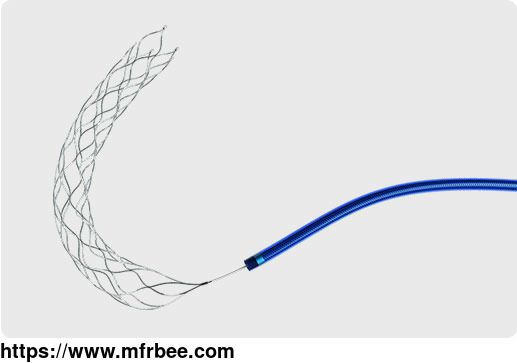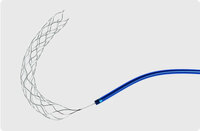Thrombite Clot Retriever Device
Product Quick Detail
- FOB Price
- USD $100.00 / Piece
- Minimum Order
- 1
- Place Of Origin
- china
- Packaging
- N/A
- Delivery
- 15 Days
Specifications
What Is a Stent Retriever?
Thrombite™ Clot Retrieval Devices
HELICAL OPEN-SIDE STRUCTURE
HIGHER ACUTE RECANALIZATION RATE
The Thrombite™ clot retrieval device, featuring S-shaped helical open-side structure, is designed for more efficient clot removal and optimum revascularization in a wide range of vessels.
Thrombite™ Clot Retriever Device
PRODUCT FEATURES
HELICAL OPEN-SIDE STRUCTURE
enables Thrombite™ retriever to efficiently entwine and clamp the clot
assures clot retention for confident removal and revascularization
OVERLAPPED STENT AT THE HELICAL OPEN-SIDE STRUCTURE
increases contact surface with thrombus and maximizes clot integration
EXCELLENT FLEXIBILITY AND VESSEL WALL APPOSITION
optimizes clot retention during smooth navigation through the tortuous anatomies
PRODUCT FEATURES
Radiopaque markers on the distal end of the device increase device visibility
3 markers for the sizes with 3.0 and 4.0mm diameter
4 markers for the sizes with 5.0 and 6.0mm diameter
Advanced stent surface treatment process
RADIAL FORCE
High radial force is designed for clot integration at the initial stage of stent expansion
Low radial force at nominal stent diameter ensures atraumatic retrieval
RADIAL FORCE
How a Retriever Stent Procedure Is Performed
Stent retriever procedure is generally performed in patients with the indications of acute cerebral infarction within six hours. After femoral artery puncture, the catheter is inserted after sheath
puncture, and DSA is performed along the catheter to the brain to find the position of blocked vascular. Make the stent retrieval product reached the position and passing through the clot. Then
release to capture the clot. After that, the stent retriever device will be extracted along with the clot and finally leave your body.
If you want to know more about tonbridge news live, please visit our website.
- Country: China (Mainland)
- Founded Year: 2012
- Contact: Zylox com










